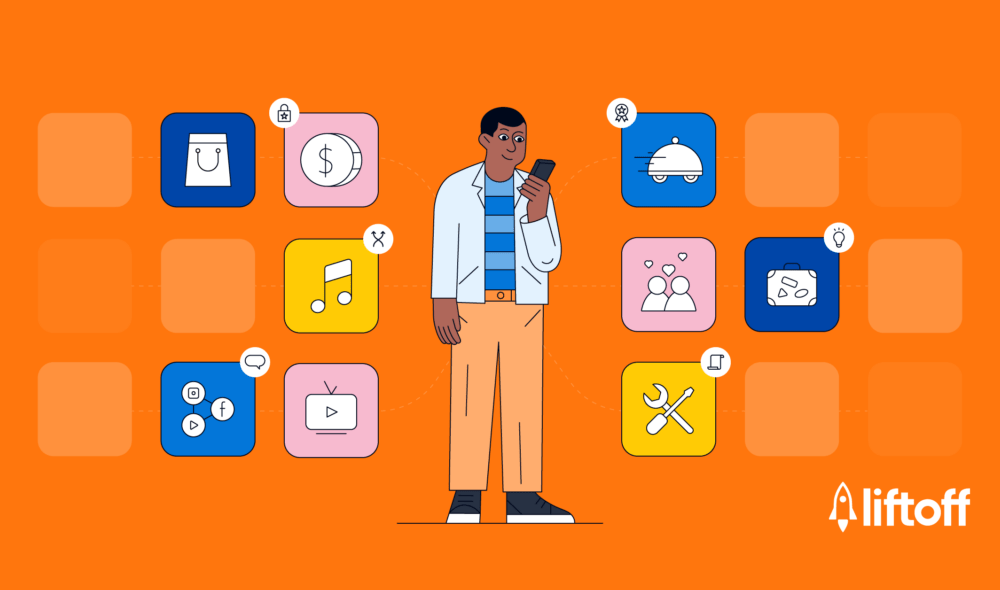

AI
RG24seven Virtual Training Collaborates with AI Experts to Expand Responsible Gaming Courses
RG24seven Virtual Training, the industry-leading and free video-based training platform for Tribal and commercial gaming employees, is pleased to offer an exclusive Artificial Intelligence (AI) course presented by Better Change and Mindway AI. The course was first announced during the premiere episode of TALK 24 highlighting the future of AI in Responsible Gaming. The new course will introduce gambling industry employees to the role AI can play in Responsible Gaming initiatives and the gambling industry as a whole.
Wendy Anderson, CEO of RG24seven Virtual Training, said, “Our new AI course aims to enhance RG24seven’s existing Responsible Gaming and Safer Gambling content, introducing new perspectives and insight that align with the latest developments in the field. As part of the fast-growing software company operating science-based solutions, Niamh Gallagher from Mindway AI, presents these courses with a deep understanding of AI.”
Gallagher added, “Promoting responsible gambling is a shared responsibility; our commitment to this training is rooted in collaboration. The gaming industry must be aware of the ethical responsibilities that come with the advancements in AI and ensure that it is used transparently, with clear and ethical guidelines in place to support Responsible Gambling behaviors. Simply taking this course helps gaming employees understand the basics of AI and the critical role it can play when used responsibly.”
Victoria Reed, CEO of Better Change and Strategic Advisor for RG24seven, concluded, “The future of AI in the gaming industry is still being written. It’s not just about the technology itself but it’s about how we choose to use it. AI in the hands of people who are committed to ethics and responsibility, has the potential to be a game-changer for player protection and industry integrity. It’s a future we’re working hard to build and it’s one we believe will benefit everyone involved, which is why we are proud to offer this new course in both the U.S. and the U.K.”
The post RG24seven Virtual Training Collaborates with AI Experts to Expand Responsible Gaming Courses appeared first on Gaming and Gambling Industry in the Americas.
AI
Liftoff’s 2025 Mobile Ad Creative Index Reveals UGC Is a Key Differentiator for Top Apps

Major findings from the newly launched report include playable ads having the potential to deliver impression-to-install rates 16 times that of non-playable formats for emerging gaming apps and a 20% increase in spending on interactive ads year over year.
Liftoff, a leading AI-enabled growth platform for the mobile app economy, has published its seventh annual Mobile Ad Creative Index. The report explores top creative trends that are attracting and scaling in ad spend across consumer apps and games. It also highlights the expanding role of AI in creative production, testing, and optimization.
This year’s Mobile Ad Creative Index specifically analyzes creative concepts that have excelled in scale for Liftoff’s highest-spending advertisers over the past 12 to 48 months. It is based on findings from over 4.7 trillion impressions, 263 billion clicks, and 1.1 billion installs between 1 January 2023 and 31 May 2025.
Highlights from the report include:
Top consumer apps are investing in interactive ads to compete for engagement
In 2024, the share of spend on interactive ads for top apps increased by 20% year over year. The share of spend increased by 2% for spenders outside the top tier. Top-spending apps differentiate their campaigns by adding innovations to evergreen concepts such as social scrollers, carousels, and scratch-offs.
Playable ads deliver returns across ad budgets for mobile game advertisers
In 2024, the share of spend on playable ads for top games averaged 35% higher than other games. Across all ad budgets, however, playable ads delivered higher conversion rates. Impression-to-install rates were 8 times that of non-playable formats for top spenders and 16 times that of non-playable formats for other game advertisers.
Tailoring “metaplay” elements to motivations can improve performance
“Metaplay” elements—gameplay that diverges from an app’s core design to appeal to a broader audience—are widespread, but top games gain an edge by tailoring their metaplay ads to the publisher audience. The report found that aligning “metaplay” creative with publisher audiences resulted in a 93% increase in installs-per-mille.
UGC is becoming a key differentiator in driving scale for consumer apps
The share of spend on user-generated content (UGC) increased 11% for top-spending apps, with social and utility apps seeing the most significant jump of nearly 30% between 2023 and 2024.
Widespread adoption of Gen AI leads to more customized ad experiences
Creative teams increasingly leverage AI to enhance top-performing assets with 3D and motion and to create and test variations. Top advertisers also use AI to recombine their assets in customized ad experiences that break away from standard video to playable formats.
Yann Zeller, Chief of Staff, Creative at Liftoff, said: “Today’s creative landscape is shaped by a single, powerful truth: attention is the commodity, and brands, games, and influencers are all vying for it. Great mobile ad experiences can earn attention by aligning context with behavior. As ad formats become richer and AI expands our ability to personalize and adapt creatives at scale, we’re able to unlock new insights into user behavior and motivation. We see users spend meaningful stretches with the right content, sometimes 60 to 90 seconds when the ad feels personal or prompts meaningful participation. This isn’t just a better way to advertise—it’s a better way to tell stories and the most exciting brief we’ve had in years.”
Soren Steelquist, Director of Creative Production, said: “The proof is in the data—more and more consumer apps are incorporating UGC into every stage of their marketing, and programmatic is no different. UGC works because it’s authentic and relatable, and users are more likely to be influenced by ad when it’s coming from a trustworthy source. To see higher impact from UGC creatives, work with a partner that can match the right creator with your brand and develop winning concepts that resonate with audiences.”
The post Liftoff’s 2025 Mobile Ad Creative Index Reveals UGC Is a Key Differentiator for Top Apps appeared first on Gaming and Gambling Industry in the Americas.
AI
UNLV’s PGA Golf Management University Program partners with Las Vegas-based AI technology company Evenplay to study the effects of rewards on skill level
There’s a timeless adage from NBA great Allen Iverson: “Practice?!” But now, almost ironically, AI (that is, Artificial Intelligence) will be helping us replicate big-time pressure in that very scenario.
Evenplay, an AI technology company based out of Las Vegas, has created a patented golf simulator application that creates challenges for all skill levels, with the intention of improving play performance through the use of cash rewards.
“What we have is a machine-learning algorithm that takes all of your shot data and says, ‘What are you going to do next from 175 yards?,’ and creates targets personalized for your skill level with money on the line,” said Sameer Gupta, co-founder of Evenplay. “If you practice with pressure, you’re probably going to get better faster.”
UNLV has partnered with Evenplay, taking on the task of studying the impact of rewards on skill level, and how well this experience translates the gains from practice into practical use on the real course.
“It sounded like a good opportunity to build a relationship and a bridge with this company,” said Chris Cain, director of the PGA Golf Management University Program within UNLV’s Harrah College of Hospitality. “And to see if we can continue to advance off-course golf, improve diversity in the consumer base, and think a little bit differently and daring, which is what UNLV’s all about.”
Upping the Ante on Research
The ability to create a feedback loop – one where you practice in the same conditions as when something’s on the line – is the goal: replicating the jitters that come from staring down a big putt, and then training yourself to handle the pressure before you step onto the course.
Evenplay does this by paying out money depending on the shot, using rewards as a way to create real stress in a controlled setting.
“What we have is a turn-key stress generator,” said Gupta. “Our model projects a thousand shots from every distance, with a target drawn where about half of your shots should be capable of landing. We’ve taken a skill-based activity and are able to predict what you will do next.”
The study at UNLV uses a more controlled version of the wagers. Randomly selected participants will receive various payouts such as lesson or UNLV Gift certificates based on their group assignments and the level of contributions to the study.
“This is a skill-based gaming application that allows someone to make a bet and have fun doing it,” said Cain. “What we’re doing at UNLV is seeing if the variable payouts influence program retention – do they play longer or more often? Does this also influence skill improvement? Wouldn’t it be cool to have some sort of technology in place that actually uses gaming as a way to positively influence skill improvement?”
The study is made possible through UNLV’s Sports Innovation Institute (SII), and the College of Hospitality’s Center for Golf Management, in collaboration with the university’s International Gaming Institute. The SII acts as a hub for all of the faculty who do research in sports, enabling them to work together to find solutions to problems and advance the commercialization of products fitting that criteria.
“With Evenplay’s expertise, as well as the Sports Innovation and the International Gaming institutes, that trifecta makes for a pretty special partnership here in Las Vegas,” Cain said. “There are thousands of data points in every swing that UNLV is looking forward to analyzing to see if this really changes the way we practice.”
Growing the Game
It’s no secret that the game of golf is expensive and often exclusive. The National Golf Foundation estimates the cost of a full round at a public course in the U.S. was $43 in 2023. That’s just getting on the course. When you add hundreds and thousands of dollars into equipment costs, training, and lessons, the financial barrier to entry becomes quite imposing.
“There are about 120 million people interested in the game and only 45 million participating,” said Cain. “Technology’s going to help close that gap, and being able to take lessons without being on the golf course will be part of the future, making it more inclusive, accessible, and affordable.”
Improving the accessibility of the game is one of the desired outcomes for the research, potentially showing a greater translation of the skills developed in a simulator using Evenplay to the course itself.
“It’s winter right now – nobody’s taking swings on green golf courses in Chicago,” said Gupta. “All of those players are using simulators indoors. We’re growing the amount of people who can engage with golf by changing how often people can meaningfully play the sport at all times of the year.”
Changing the game doesn’t end with golf. The patent for Evenplay features a baseball player swinging a bat, and the plan is to roll into bowling next. Its partnership and ongoing study with UNLV is only expediting the interest in this potential shakeup to the practice session.
“The ability of UNLV to effectively structure a relationship with the PGA is very impressive and unique in the market,” said Gupta. “And bringing that knowledge to a private company like ours is essential to our growth.”
The results of Evenplay’s efficacy in providing measurable improvement to player skill will be shared as the study concludes later this year.
The post UNLV’s PGA Golf Management University Program partners with Las Vegas-based AI technology company Evenplay to study the effects of rewards on skill level appeared first on Gaming and Gambling Industry in the Americas.
AI
British Columbia Lottery Corporation and Future Anthem partner to establish Artificial Intelligence and Data Innovation Hub in Vancouver
Partnership will create dedicated specialist team to develop and deploy AI to improve player experiences across gaming products and channels.
BCLC has partnered with Future Anthem, a UK-based gambling data science specialist, on the creation of an Artificial Intelligence (AI) and Data Innovation Hub (the “Hub”), to be located at BCLC’s Vancouver office.
The Hub will focus on the development of AI, data capabilities and programs designed to improve the player experience across all BCLC gambling platforms, including lottery, gaming, and sports. It will employ a team of data and product professionals, with access to Future Anthem’s Data Science platform.
“BCLC is excited to be partnering with Future Anthem to create the first AI innovation hub in B.C. focused on the gambling industry,” says Mark Goldberg, BCLC’s Chief Information Officer. “We know that the key components of the Hub will be its data driven research and software product development to support player engagement and experience, safer play and improved game design – core BCLC business areas.”
Managed in partnership through a joint Steering Committee that includes senior representatives from both BCLC and Future Anthem, the Hub will create and cultivate highly specialized, Vancouver-based AI technology jobs utilising Future Anthem’s strong experience in building teams focused on AI research and development, complemented by a small team of BCLC employees with skills and experience in this area.
“This dynamic partnership combines our expertise, reach, and technologies and allows us to harness AI for good – to bring true and measurable benefits to players in a responsible, sustainable, and enjoyable manner,” says Leigh Nissim, CEO and Founder of Future Anthem. “With access to more data across all verticals and channels to build amazing machine learning models and AI applications, I am confident this collaboration will quickly deliver benefits to BCLC and its players to reinforce its lead position within lotteries globally.”
As well as recruiting the team in Vancouver, Future Anthem will deploy its market-leading real time AI platform locally to employ best practices for AI product development and governance within the Hub, which includes protocols to ensure transparency of AI use, data security, and management of AI models and their player impact. These models are designed to use anonymised data that is stored in Canada.
-

 gaming3 years ago
gaming3 years agoODIN by 4Players: Immersive, state-of-the-art in-game audio launches into the next generation of gaming
-
EEG iGaming Directory8 years ago
iSoftBet continues to grow with new release Forest Mania
-
News7 years ago
Softbroke collaborates with Asia Live Tech for the expansion of the service line in the igaming market
-
News6 years ago
Super Bowl LIII: NFL Fans Can Bet on the #1 Sportsbook Review Site Betting-Super-Bowl.com, Providing Free Unbiased and Trusted News, Picks and Predictions
-
iGaming Industry8 years ago
Rick Meitzler appointed to the Indian Gaming Magazine Advisory Board for 2018
-
News6 years ago
REVEALED: Top eSports players set to earn $3.2 million in 2019
-
iGaming Industry8 years ago
French Senator raises Loot Boxes to France’s Gambling Regulator
-
News7 years ago
Exclusive Interview with Miklos Handa (Founder of the email marketing solutions, “MailMike.net”), speaker at Vienna International Gaming Expo 2018



















